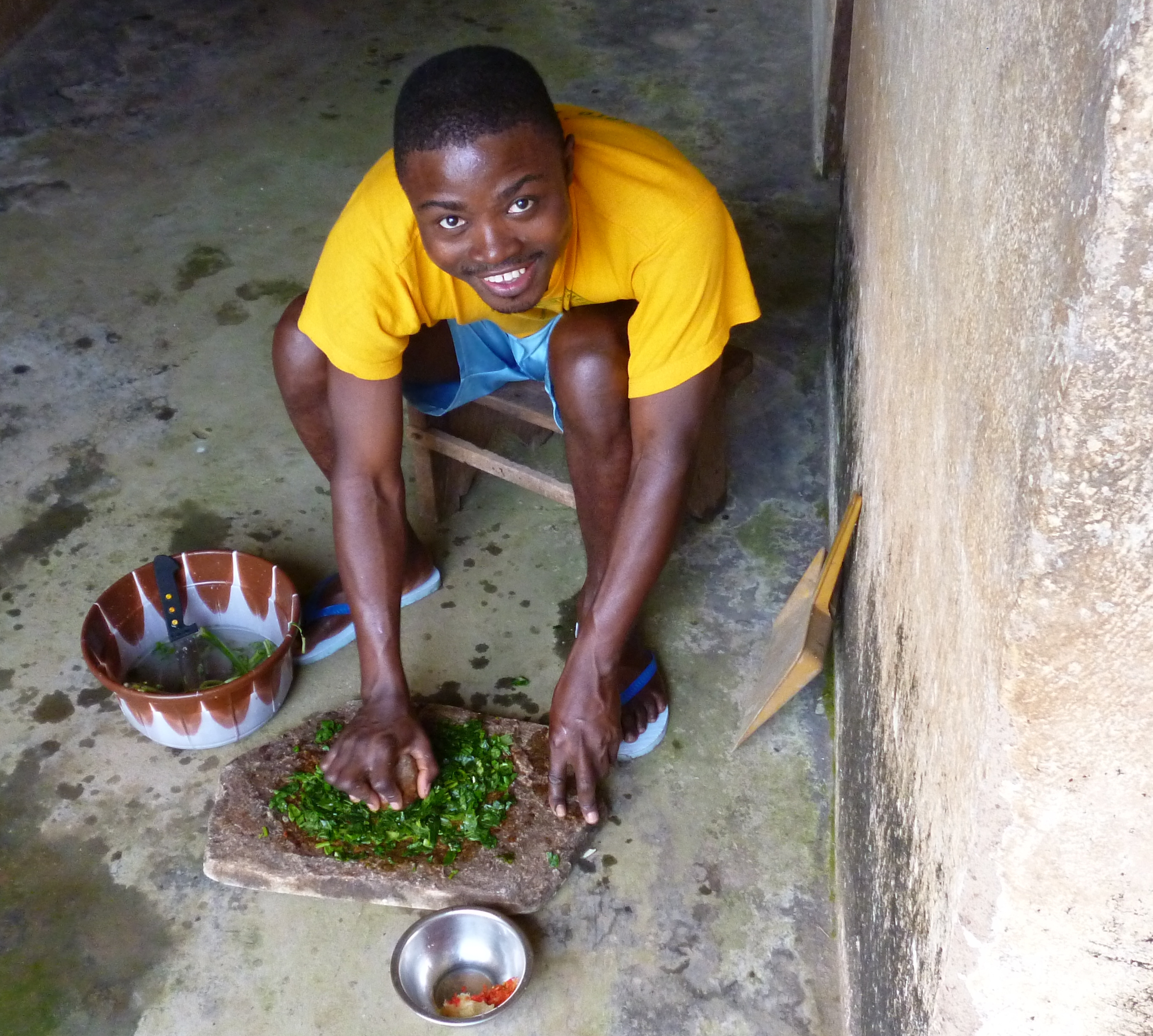Zwei ANSAs, zwei verschiedene Perspektiven zu einem Thema. Dieses Mal schildern Sebastian und Conrad ihre Erfahrungen mit Gastfreundschaft in Deutschland und Kamerun.
Eine Perspektive auf Gastfreundschaft von Sebastian Linnarz
Ich verstehe unter Gastfreundschaft, dass man eingeladen wird, sei es zum Essen, Trinken, oder Übernachten. Dazu gehört für mich, dass man herzlich aufgenommen und gut behandelt wird. Außerdem zählt für mich, dass einem Freundlichkeit und Respekt entgegengebracht wird.
Ich habe Gastfreundschaft in Kamerun so erlebt, dass ich sehr warmherzig von den Kamerunern aufgenommen worden bin. So durfte ich beispielsweise ein Jahr gratis bei meinem kamerunischen Arbeitskollegen wohnen, obwohl er mich vorher nicht kannte. Darüber hinaus kochte und bewirtschaftete er mich kontinuierlich, obwohl ich dies nicht annehmen wollte. Aber er meinte, als Gast in seinem Land würde er das gerne tun. Darüber hinaus wurde ich oft von Kollegen oder Bekannten in Kamerun zum Essen eingeladen. Mit Freude wurden mir traditionelle kamerunische Gerichte wie Eru, Fofu oder Equang vorgestellt.
Diese Erfahrungen haben mir gezeigt, dass in Kamerun Fremde viel offenherziger empfangen werden als in Deutschland. In Kamerun war es den Leuten eine Freude und Ehre, mich als Gast in ihrer Wohnung oder Haus zu haben. In Deutschland sind die Menschen deutlich zurückhaltender, auch egoistischer was das Unterbringen von Gästen über einen längeren Zeitraum angeht. Was Gastfreundschaft anbetrifft, gibt es seitens der Kameruner wenig zu verbessern. Ihre Gastfreundschaft ist schon außerordentlich gut. Einzig negativ sind die korrupten Sicherheitsleute (Polizei, Militär, Gendarmerie), die ständig versuchen einem Geld aus der Tasche zu ziehen. Dies sollte sich ändern.
In Deutschland könnte man die Gastfreundschaft vor allem dadurch stärken, dass die Menschen hier den Kamerunern mit weniger Vorurteilen gegenübertreten. Man sollte Kameruner genauso gut behandeln, wie diese es mit uns in ihrem Land machen. Man sollte sie nach Deutschland einladen, damit sie ein Visum bekommen und die Möglichkeit haben sich Deutschland anzuschauen, unsere Kultur kennenzulernen oder hier zu studieren.
 Sebastian Linnarz promovierte an der Rheinischen Friedrich-Wilhelms-Universität in Bonn am Institut für Zoologie zum Thema „Ecology and behavior of Pan troglodytes ellioti and Gorilla gorilla diehli“. Er war für ein Jahr vom DAAD gefördert zur Forschung in Kamerun.
Sebastian Linnarz promovierte an der Rheinischen Friedrich-Wilhelms-Universität in Bonn am Institut für Zoologie zum Thema „Ecology and behavior of Pan troglodytes ellioti and Gorilla gorilla diehli“. Er war für ein Jahr vom DAAD gefördert zur Forschung in Kamerun.
Eine Perspektive auf Gastfreundschaft von Conrad Simoben Veranso
Hospitality in a general parlance refers to how we reach out and treat other people, mostly strangers. The apparent cultural and social customs of Germans globally have been portrayed as being strong, unfriendly, rude amongst others. With this conception, I wondered how I will be able to make friends in Germany. I kept asking myself questions like: will they be friendly or welcoming; will there be a disadvantage for me due to a language barrier; and what about experiencing cultural shock? Questions all based on my psychology and the stereotype presented towards Germans. These preconceptions, initially, seemed to be confirmed by the frankness in conversations and the German cultural heritage characterized by punctuality as well as the strong appearance they pose.
However, the attitude towards strangers in Germany, I believe may depend on the areas, and to some extent the ethnicity and nationality of the specific foreigner in question. Living in Germany for two years now and still counting, Germans, I will say are: tolerant; well behaved; helpful and humble. Interestingly, when you succeed to break through to Germans and make friends, they truly make friends and would go extra miles for that. Personally, I have come across some really interesting Germans within my working group, through social gatherings and events as well as also, really lovely people of different ages on the streets. If you are interested in knowing Germans: their style/culture, ask a German who, mostly may be very frank about their feelings which, foreigners often mistake for rudeness.
To conclude, I would like to say that it might not be the same experience for you, as what is said herein is based on my personal experience living in Germany. As can be observed anywhere else, you will also find people with varying degree of Xenophobes or racists behaviour against foreigners.
 Conrad Simoben Veranso obtained his BSc and MSc in Chemistry from the University of Buea in Cameroon. He latter obtained a full PhD scholarship from the DAAD foundation. Since 2016, he has been working as a doctoral fellow in the research group of Wolfgang Sippl at the Martin-Luther University, Halle-Wittenberg.
Conrad Simoben Veranso obtained his BSc and MSc in Chemistry from the University of Buea in Cameroon. He latter obtained a full PhD scholarship from the DAAD foundation. Since 2016, he has been working as a doctoral fellow in the research group of Wolfgang Sippl at the Martin-Luther University, Halle-Wittenberg.
